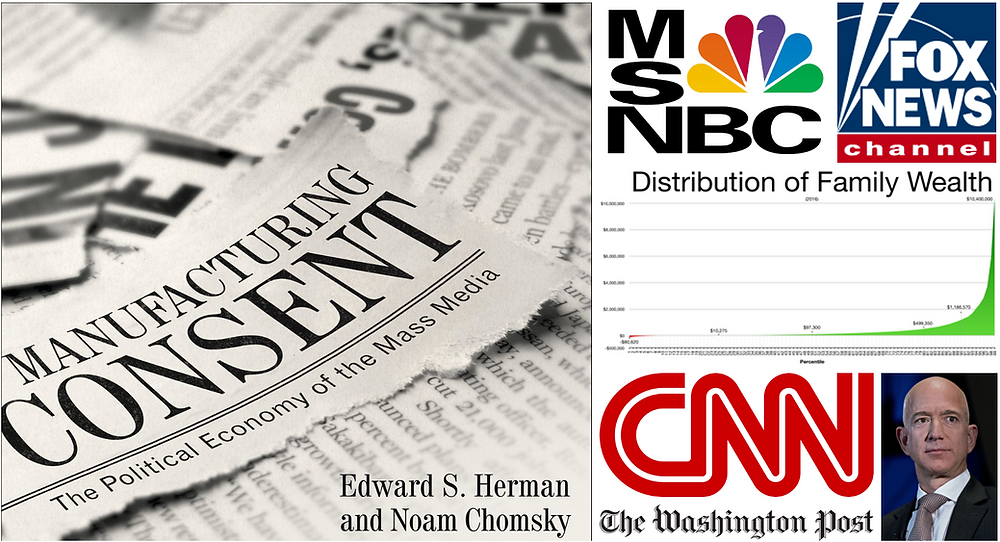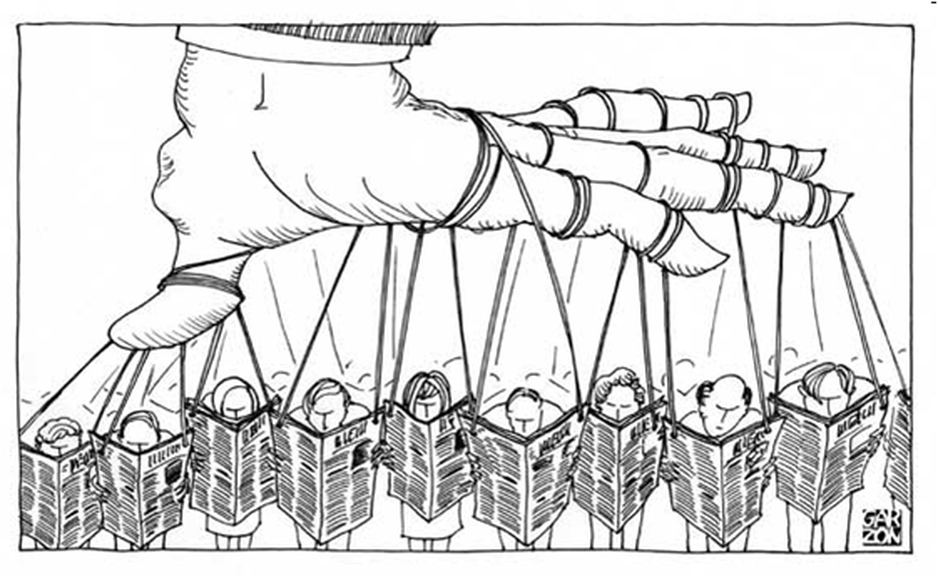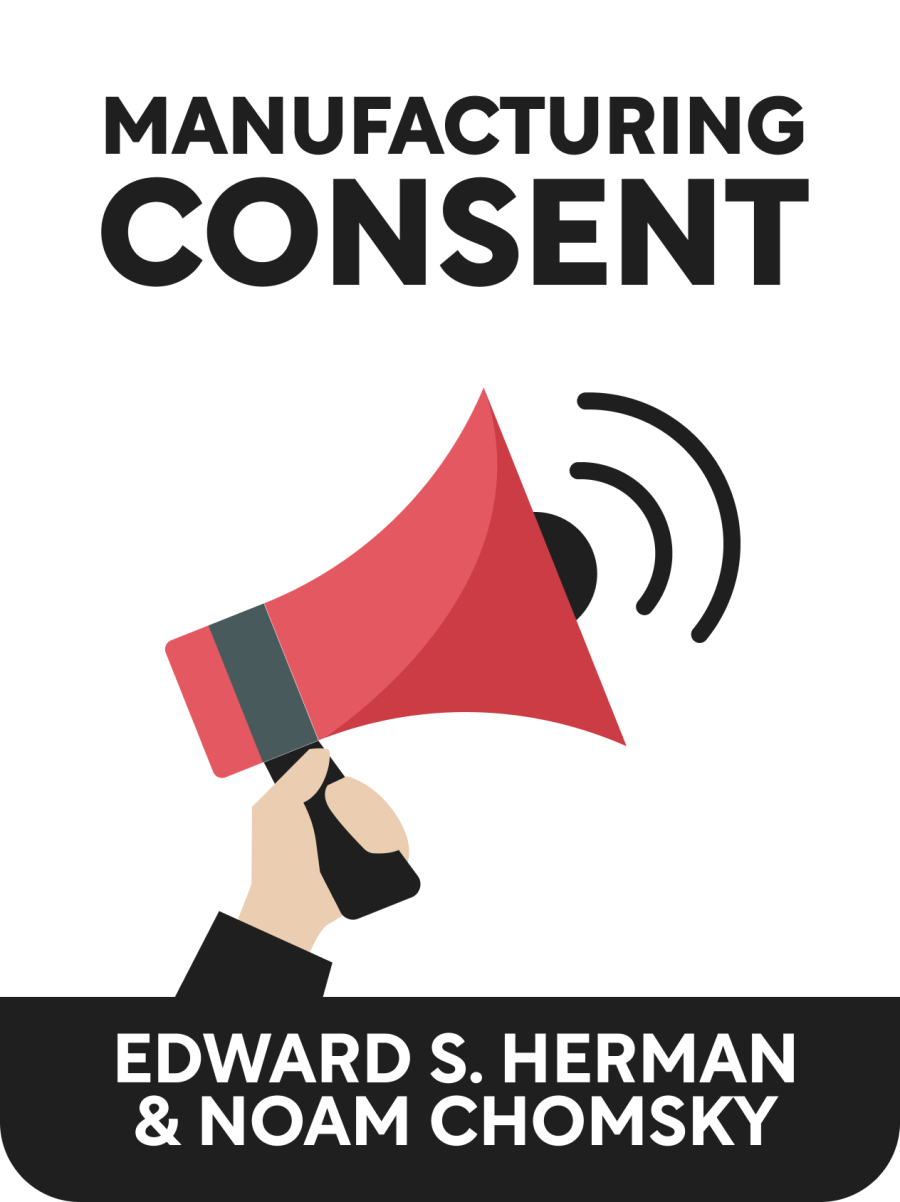The media is the best tool for people to interact and understand society– new policies, election results, or events happening around the world are all known in the form of news. In the past, people obtained news through newspapers or radio, but now people can directly access the information they want to know on their phones. Whether in the past or present, we always believe that information obtained through official channels is often correct and authoritative. But is this really the case?

Manufacturing Consent: The Political Economy of the Mass Media is a book wrote by Edward S. Herman and Noam Chomsky in 1988, which explores how the upper class controls and distorts news to convince the public of what is beneficial to them.
- Enterprise and equity owners: Many high-income individuals and power holders are large business owners, whose businesses invest in media institutions to provide funding and resources, and media institutions heavily rely on these companies. These large enterprises determine the content that the media needs to report and remain silent, which is often related to their profit.
- Advertiser: In addition to investment and national support, most of the revenue of media institutions comes from advertising. Without the support of advertisers, this media organization cannot be established, which is why news media needs to cater to advertisers’ political biases and economic desires.
- Government: Government agencies and other state agencies control and maintain the state, and news media are no exception. Sometimes news can distort facts but only to cover up a scandal involving a senior government official or a mistake in national decision-making. We usually only see the positive side of the government but not the other side, which is the result of government agencies controlling news content.

In Conclusion
The media is not free, objective, and fair. Those with political power and economic strength determine what the public is allowed to see, hear, and think, while also “managing” public opinion through regular promotional activities. For example, although the report on the Watergate incident appeared to criticize Richard Nixon, it was actually just a puppet of another ruling class, who unexpectedly saved the image of the Democratic Party.
Reference:
1.Open Shelf (15, Jun, 2017) Fake news and manufacturing consent
URL: https://open-shelf.ca/170615-news-manufacturing-consent/
2.Luke Rowley (18, Nov, 2018) Four Minute Books
URL: https://fourminutebooks.com/manufacturing-consent-summary/


Hi! I read your article and I think it highlights important concerns regarding the veracity of information conveyed through the media and unveils the impact of strong institutions on news content. Herman and Chomsky’s investigation of Manufacturing Consent provides a prism through which to analyse how the upper class may change popular perception through media manipulation, but it’s through your concise study of how huge corporations and marketers influence media content by developing political prejudices and economic interests that you offer a great insight into the complex processes at work.
Overall I think your article is well structured but including examples or case studies of when media narratives were impacted by the interests of these big institutions could have helped clarify the topic chosen.
A very good blog, this blog effectively highlights the main points in Manufacturing Consent: the Political Economy of Mass Media about how the media is influenced and controlled by corporations, advertisers, and government agencies, demonstrating a deep critique of the media for not being free, objective, and unbiased. In addition uses some persuasive references to prove its point. Looking forward to your next blog!